
Latest Coronavirus Disease COVID 19 News and Research
Administration eases rules to give laid-off workers more time to sign up for COBRA
People who've been laid off or furloughed from their jobs now have significantly more time to decide whether to hang on to their employer-sponsored health insurance, according to a recent federal rule.
An ickier outbreak: Trench fever spread by lice is found in Denver
Dr. Michelle Barron, medical director of infection prevention and control at UCHealth University of Colorado Hospital, received an unusual call last month from the microbiology lab: confirmation of the third case this year of trench fever, a rare condition transmitted by body lice that plagued soldiers during World War I.
For COVID tests, the question of who pays comes down to interpretation
In advance of an upcoming road trip with her elderly parents, Wendy Epstein's physician agreed it would be "prudent" for her and her kids to get tested for COVID-19.
As coronavirus patients skew younger, tracing task seems all but impossible
Younger people are less likely to be hospitalized or die of COVID-19 than their elders, but they circulate more freely while carrying the disease, and their cases are harder to trace. Together, these facts terrify California hospital officials.
COVID-19 incinerators set new record for merseyside manufacturer
A global waste management specialist has completed its first ever air-freighted incinerator system in record time, to help United Arab Emirates hospitals manage Coronavirus-infected waste.
Australian researches detect SARS-CoV-2 virus in wastewater from planes and cruise ships
Previous reports have shown that the severe acute respiratory syndrome coronavirus 2 (SARS-CoV-2), the virus that causes the coronavirus disease (COVID-19), has been found in untreated wastewater. While the data is limited, there are no reported cases of a person becoming infected with the virus due to exposure to contaminated water.
Oxford University and AstraZeneca to publish eagerly-anticipated COVID-19 trial results today
The coronavirus pandemic is still rapidly spreading across the globe, infecting more than 14.44 million people. With more than 188 countries and territories affected, scientists are racing to develop a vaccine against the severe acute respiratory syndrome coronavirus 2 (SARS-CoV-2), the virus that causes the coronavirus disease (COVID-19).
Hydroxychloroquine is not indicated for COVID-19 under any circumstances
The drug Hydroxychloroquine has long been studied as a treatment for malaria and autoimmune diseases. When the coronavirus pandemic spread across the globe, many countries resorted to using the drug in the hopes that it would improve outcomes of hospitalized patients affected by the coronavirus disease (COVID-19).
Researchers determine how SARS-CoV-2 inhibits protein synthesis
Researchers from Munich and Ulm have determined how the pandemic coronavirus SARS-CoV-2 inhibits the synthesis of proteins in infected cells and shown that it effectively disarms the body's innate immune system.
Examining cardiovascular injuries in patients who recovered from COVID-9 infection
The coronavirus disease is wreaking havoc on the health of communities throughout the world and may have lasting cardiac effects on those who have recovered from the virus.
Hybrid fungus involved in lung infections discovered
Aspergillus latus, a species of fungus previously found only in soil or plants, has been found for the first time in a hospital environment by an international group of researchers.
Researchers are producing COVID-19 spike proteins to prevent future infections
On July 1, the Texas A&M Engineering Experiment Station's National Center for Therapeutics Manufacturing received funding from the National Institute for Innovation in Manufacturing Biopharmaceuticals to help find a way to prevent the SARS-CoV-2 virus from binding to cells, protecting people from future infections.
Private radiology practices have been greatly affected by COVID-19 pandemic
Private radiology practices have been especially hard hit by the COVID-19 pandemic, and the steps they take to mitigate the impact of the pandemic on their practice will shape the future of radiology, according to a special report from the Radiological Society of North America COVID-19 Task Force, published today in the journal Radiology.
Research shows increased psychological well-being after the first wave of COVID-19 pandemic
The corona crisis appears to have had a negative impact on the mental health of the Danish population, but research from Aarhus University shows that the psychological well-being had improved already by the end of April.
Trump administration’s sudden shift on COVID data leaves states in the lurch
Just as the number of people hospitalized for COVID-19 approaches new highs in some parts of the country, hospital data in Kansas and Missouri is suddenly incomplete or missing.
Study reveals antiviral effects of curcumin
Curcumin, a natural compound found in the spice turmeric, could help eliminate certain viruses, research has found.
Montana Rodeo goes on, bucking fears on fort peck reservation
Cowboys lined the metal chutes that released bucking horses and their riders into the arena, Miss Rodeo Montana signed autographs for fans, and coronavirus warning signs ended with "Face mask usage is of personal choice."
More COVID-19 cases where blood type A is common
Now, a new study by researchers at the University of Ulm, Germany, which is published on the preprint server medRxiv in July 2020, focuses on how blood group distribution is related to the mapped dynamics of the epidemic as shown by its geographical distribution.
Seroprevalence of SARS-CoV-2 antibody among blood donors in China
Now, a study published on the preprint server medRxiv* in July 2020 reports on the low seroprevalence of antibodies to the virus, now designated severe acute respiratory syndrome coronavirus 2 (SARS-CoV-2), among blood donors in Wuhan, the Chinese city it all started in, and two other equally large cities in China.
Game-Changer: A SARS-CoV-2 serological test for 50-cents per sample!
A recent study published in the preprint server medRxiv in July 2020 shows that this is indeed possible. The development of this inexpensive but reliable and sensitive test could change the face of preventive measures for COVID-19 in low-resource settings.
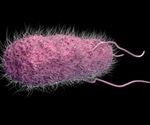




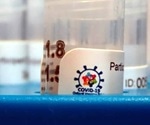
_322530db10c44fe7989ae2af131ad866-150x125.jpg)
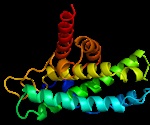
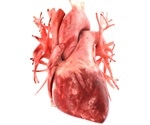

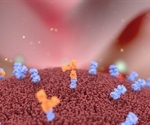
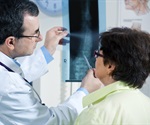
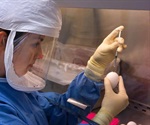
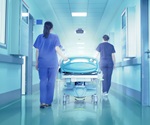


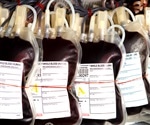
_960d7234c567440ead350a0ece2a40b1-150x125.jpg)
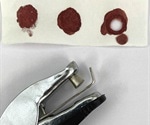
































No hay comentarios:
Publicar un comentario